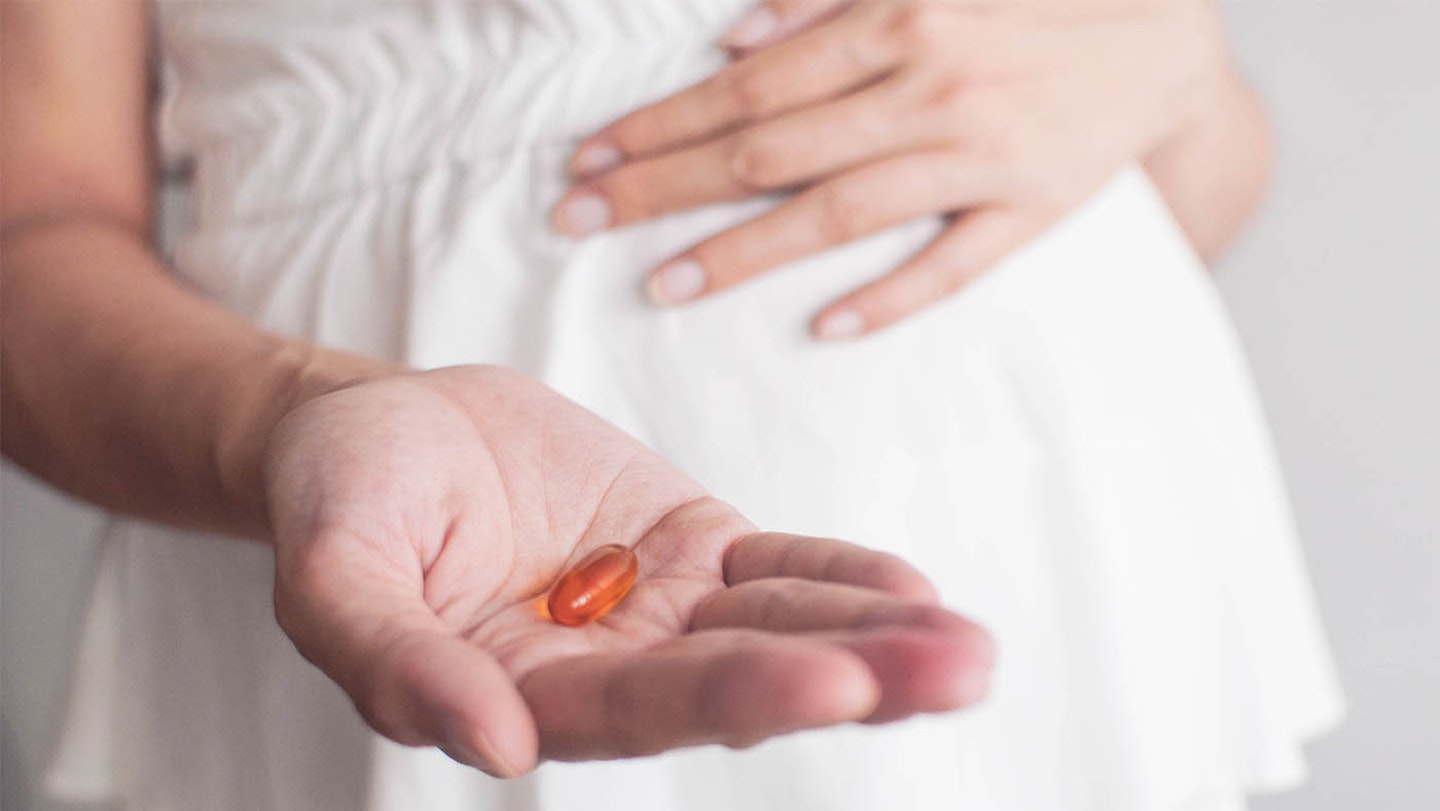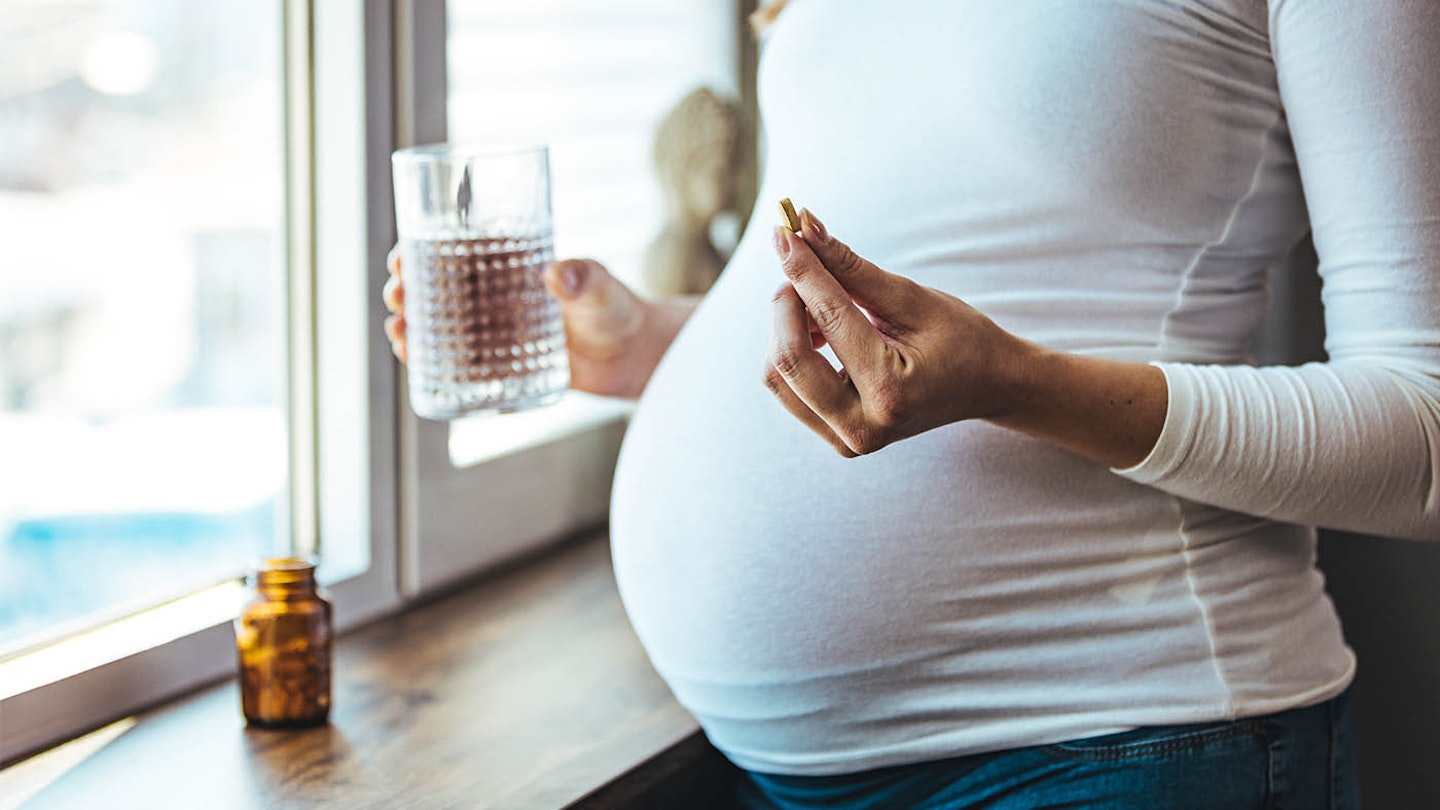When you become pregnant, it's natural to become hyper aware of your body and want to ensure that it gets everything it needs from pregnancy vitamins to a healthy diet to help support you and your growing baby. One important supplement you'll need to start taking while pregnant is Vitamin D. We spoke to ASDA Online Doctor Dr Kathryn Basford to find out more.
What is vitamin D?
Vitamin D is a fat-soluble hormone that plays a vital role in maintaining bone structure and growth. The benefits of vitamin D include keeping our bones, teeth and muscles healthy as well as supporting our immune system.
Healthy levels of vitamin D can help prevent certain conditions such as multiple sclerosis, heart disease and viruses like flu and COVID-19. There is also some evidence that we need vitamin D to regulate our mood and limit the risk of depression, and supplements are often recommended during the autumn and winter period when our exposure to the sun is limited.
How much vitamin D should I take during pregnancy?
During pregnancy, it’s recommended you take 10 micrograms of vitamin D each day. This can help your baby to develop healthy bones, teeth, kidneys, heart and nervous system, whilst also keeping you well.
It can be difficult to get enough vitamin D from diet alone, so it’s advised that vitamin D supplements are taken. This is particularly important between September and March and for women who might be at a higher risk of low vitamin D levels, including those who spend a lot of time indoors or with their skin covered, and those with darker skin.
Most pregnancy supplements will contain the correct amount of vitamin D, but check with your midwife or pharmacist if you are not sure. Some women may be entitled to free supplements through the government Healthy Start Scheme.

When to start taking vitamin D during pregnancy
Many women who are actively trying for a baby start supplementing their diet before conception, as it’s advised that women take vitamin D throughout the course of their pregnancy, and when breastfeeding. While supplements can be taken from the first trimester, there’s no need to panic if you’ve just found out you’re expecting, and haven’t been getting your recommended levels of vitamin D. If you’re worried, speak to a medical professional, who can advise on making dietary changes safely.
Will I need to take extra vitamin D during pregnancy?
A lack of vitamin D in pregnancy is associated with a higher risk of developing preeclampsia or giving birth prematurely, but you should only take the recommended daily allowance of 10 micrograms, which is enough to take throughout your pregnancy.
You do not need to take more than the recommended dose unless told to by your doctor, as excessive levels may be harmful to you and your baby. If you are concerned or would like to know more about your vitamin D levels, speak with your doctor or midwife.
Some women may need more vitamin D than others, this could be because you:
• Have a BMI above 30
• Have darker skin
• Cover your skin
• Rarely go outdoors
• Use a high-factor sunscreen
If you fall into one of these groups, you could have a higher risk of vitamin D deficiency and be required to take more vitamin D.
What foods have vitamin D?
Another great way to naturally get vitamin D is through food, and there are a few options you can choose from. Fatty or oily fishes such as salmon, sardines, or mackerel contain a range of health benefits including vitamin D and omega-3, which can help a baby’s nervous system to develop. Eggs and red meat are also great sources of vitamin D and protein, however, it is suggested that you cook these well to ensure safety for yourself and your baby.
About the expert
Dr. Kathryn Basford studied medicine at the University of Manchester where she also completed a Masters degree in public health. She completed her GP training at Whipps Cross Hospital in London. Her specialisms include women's health and sexual health. Dr Kathryn Basford is currently studying for a diploma in dermatology at Cardiff University.
Outside of work she enjoys keeping active with marathons, swimming and triathlons. She also likes to bake.
A journalist since 2015, Emily Gilbert is the Features & Reviews Editor for Mother&Baby and has written for the website and previously the magazine for seven years. Emily writes about everything from the top baby products to pregnancy, fertility and maternal mental health. Specialising in product reviews, Emily is the first to know about all the exciting new releases in the parenting industry.
